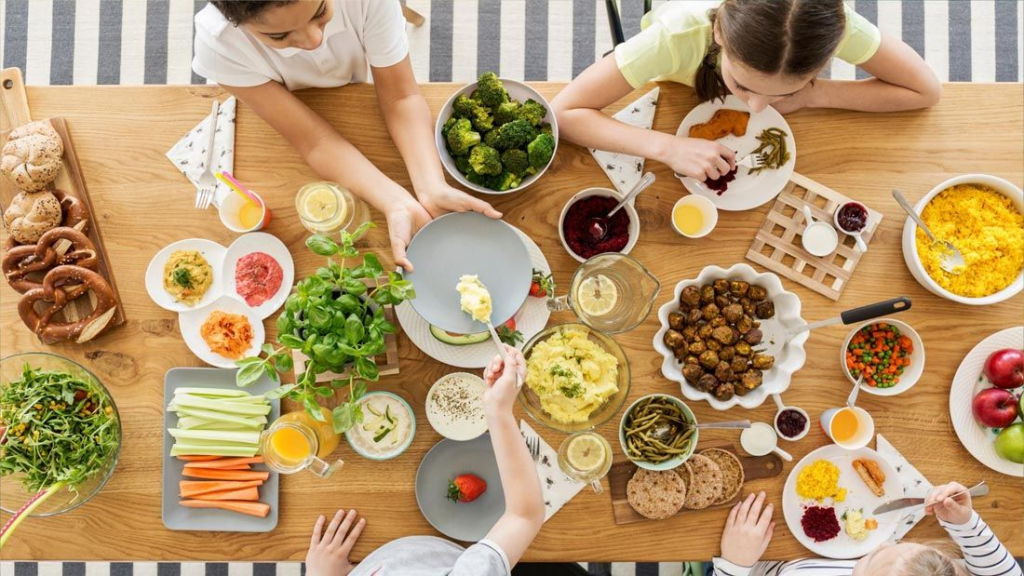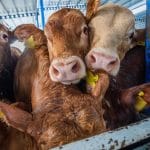Å oppdra veganske barn i en verden der dyreprodukter er dypt innebygd i hverdagen kan være utfordrende, men det er også utrolig givende. Ved å oppdra barna dine på et plantebasert kosthold, innfører du verdier av medfølelse, miljøbevissthet og helsebevissthet som kan vare livet ut. Navigering av kompleksitetene i vegansk foreldreskap - som å sikre riktig ernæring, håndtere sosiale situasjoner og fremme en forståelse av de etiske og miljømessige fordelene ved veganisme - krever gjennomtenkt forberedelse og støtte. Nedenfor er noen viktige tips for å hjelpe deg med å oppdra veganske barn mens du fremmer en medfølende og balansert familiens livsstil.
1. Start tidlig: jo tidligere, jo bedre
Hvis du oppdrar veganske barn fra fødselen, er du allerede foran når det gjelder å skape en medfølende livsstil. Å introdusere et plantebasert kosthold tidlig gir barn et grunnlag for å ta matvalg på linje med verdiene dine. Hvis barnet ditt er eldre og går over til et vegansk kosthold, er det viktig å gjøre prosessen gradvis og positiv, med fokus på maten de liker og introdusere dem for nye veganske alternativer som oppfyller deres smak.
Å starte tidlig hjelper også med å unngå forvirring når det gjelder valg av mat, ettersom barn som er oppvokst på et vegansk kosthold er mindre sannsynlig å føle seg fratatt eller isolert fra andre. Ved å inkludere dem i måltidsplanlegging og forberedelser, vil du sikre at de føler seg involvert og begeistret for måltidene.

2. Fokus på ernæringsbalanse
En vanlig bekymring når du oppdrar veganske barn, er å sikre at de får alle nødvendige næringsstoffer. Et balansert vegansk kosthold kan gi alt de trenger for sunn vekst og utvikling, men det er viktig å være oppmerksom på viktige næringsstoffer som protein, vitamin B12, vitamin D, kalsium, omega-3 fettsyrer og jern.
For å sikre at barnet ditt får nok ernæring:
- Protein: Inkluder plantebaserte proteinkilder som linser, bønner, tofu, quinoa og kikerter.
- Vitamin B12: Siden B12 hovedsakelig finnes i animalske produkter, velger du forsterkede matvarer (for eksempel forsterket plantemelk, frokostblandinger og ernæringsgjær) eller vurder B12 -tilskudd.
- D -vitamin: Eksponering for sollys og forsterkede plante -melk kan hjelpe med D -vitamin -nivåer.
- Kalsium: Bladede greener, forsterkede plantemelk, tahini, tofu, mandler og fiken er store plantebaserte kilder til kalsium.
- Jern: Jernrik plantemat som spinat, linser, bønner og forsterkede korn kan bidra til å sikre at barnet ditt får tilstrekkelig jern. Par disse matvarene med C-vitamin-rike matvarer (som appelsiner eller paprika) for å forbedre jernabsorpsjonen.
Å konsultere en barnelege eller en registrert kostholdsekspert som er kunnskapsrik om plantebaserte dietter, kan hjelpe deg med å spore barnets ernæringsmessige fremgang og gjøre justeringer om nødvendig.

3. Oppmuntre til et positivt forhold til mat
Å oppdra barn på et vegansk kosthold betyr ikke å gjøre mat til en kilde til skyld eller begrensning. I stedet kan du fremme et positivt forhold til mat ved å understreke variasjon, smak og moro. Introduser nye veganske matvarer med spenning, og gjør måltidet til en hyggelig opplevelse ved å utforske forskjellige kjøkken og smaker.
Involver barna dine på kjøkkenet ved å la dem hjelpe med måltider, matlaging og dagligvarehandel. Denne praktiske tilnærmingen kan skape en følelse av eierskap og spenning rundt mat. Veganske oppskrifter, som fargerike veggie-elendige, plantebaserte pizzaer eller meierifri iskrem, kan være spesielt morsomme for barna å tilberede og spise.
Oppmuntre også barnet ditt til å prøve nye matvarer uten press, slik at de ikke føler seg tvunget eller begrenset. Positiv forsterkning når de prøver nye matvarer kan også være effektive.
4. Adressere sosiale situasjoner og gruppepress
Når barn vokser, begynner de å samhandle mer med jevnaldrende, og sosiale situasjoner, som bursdagsfester eller skolelunsjer, kan utgjøre utfordringer for veganske barn. Det er viktig å utstyre barnet ditt med selvtilliten til å holde seg tro mot verdiene sine, samtidig som de lærer dem hvordan de skal håndtere sosiale interaksjoner med vennlighet og respekt.
- Vær ærlig og selvsikker: Lær barnet ditt hvordan du kan forklare kostholdsvalgene sine på en enkel, positiv måte. Oppfordre dem til å dele årsakene til at de er veganske (for eksempel dyrs rettigheter, helse og miljøhensyn), men også å være åpne for andres perspektiver uten skjønn.
- Forbered snacks og måltider: Send barnet ditt til skolen eller arrangementer med sine egne veganske snacks eller måltider. Dette sikrer at de ikke vil føle seg utelatt og kan glede seg over mat sammen med jevnaldrende. Veganvennlige alternativer som frukt, granola-barer, veggieinnpakninger eller hjemmelagde energibitt er gode valg.
- Respekter andre familiers valg: Lær barnet ditt å respektere at andre kan ha forskjellige kostholdsvalg. En enkel "Jeg spiser ikke kjøtt fordi jeg elsker dyr" kan være en måte for dem å dele sitt valg uten å forårsake friksjon.
Å styrke barnet ditt med verktøyene til å håndtere disse situasjonene selvsikker vil hjelpe dem med å navigere med sosiale omgivelser med letthet.

5. Sett et godt eksempel
Barn lærer ofte ved eksempel, så det er viktig å modellere atferden du ønsker å se hos barna dine. Din lidenskap for veganisme vil sannsynligvis inspirere dem til å ta lignende valg, og det kan gjøre at overgangen til en plantebasert livsstil føles mer naturlig og komfortabel.
Å være i samsvar med valgene dine hjelper også barnet ditt å forstå at veganisme er en livsstil, ikke bare en midlertidig beslutning. Denne konsistensen gjelder ikke bare måltider, men for etiske beslutninger i dagliglivet-enten det er å velge grusomhetsfrie produkter eller delta i miljøvennlig praksis.
6. Innlemme veganisme i familiens verdier
Veganisme kan bli en hjørnestein i familiens verdier. Det handler ikke bare om maten du spiser, men om å fremme medfølelse, empati og miljøbevissthet. Snakk åpent om de etiske grunnene for å velge en plantebasert livsstil og fordelene det har for dyr, planeten og menneskers helse.
Vurder å ta familieturer til dyrehelligdommer, delta i plantebaserte matlagingskurs eller se på dokumentarer om dyrevelferd og miljøspørsmål sammen. Ved å integrere veganisme i familiens verdier og handlinger, skaper du et miljø der medfølelse og bærekraft er en naturlig del av hverdagen.
















































